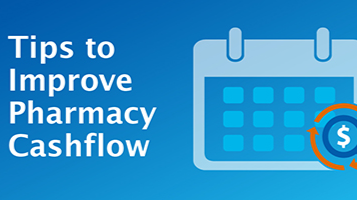Do you find yourself wondering when will you get paid for third-party prescription claims that have been recently adjudicated? Or how long it takes to receive payment from the Pharmacy Benefit Manager (PBM)? Does one PBM pay faster than another? Do your payments seem to be taking longer than normal to arrive? As a pharmacy owner, knowing when you will be paid provides an advantage to making strategic decisions, budget forecasting, and making investments to grow your business. A pharmacy’s cashflow is critical to building a healthy and profitable pharmacy. Adding a Days Sales Outstanding (DSO) report to your tool belt provides information needed to answer these questions.

According to the article “Days Sales Outstanding Calculation”, the Days Sales Outstanding report helps a company with collection efforts by understanding when to expect payment (Bragg, 2019). Knowing when to expect payments helps the pharmacy:
• plan collection efforts
• forecast incoming revenue
• make budget and expenditure decisions
• establish estimated payment timeline benchmarks
• provide insight on the largest utilized payer
Managing pharmacy cashflow manually through payment tracking can be both tedious and time consuming. Each PBM pays on their own payment schedule based on the claim adjudication date. With Net-Rx, a remittance advice or proof of payment is sent to Net-Rx simultaneously with the payment to the pharmacy. If we know the average number of days that the receivables remain outstanding before they are collected, we can plan to follow up with the payer at appropriate times and budget accordingly for expenditures.
See our study on Third Party Payment Timing.
Net-Rx recommends tracking these key events through the Days Sales Outstanding (DSO) report by using the suggestions below:
• The date the claim was adjudicated
• The payment date (the date the payment was issued)
• The remittance date (the date Net-Rx received proof of payment)
The Days Sales Outstanding (DSO) can identify and calculate this information for the pharmacy, saving valuable time for the pharmacy staff. With expertise in pharmacy reconciliation, Net-Rx’s Average Days Sales Outstanding (DSO) report can provide insight into the payment status across the pharmacy’s recently adjudicated claims. The DSO report is available on the reconciliation portal 24 hours a day and can be customized to a specific date range, payer, or NCPDP if there are multiple locations being managed. Using this report on a regular basis, can help a pharmacy identify a PBM that is taking longer to issue payments, which could lead to disruption in a pharmacy’s cashflow.
The ability to search by BIN within this report provides visibility that allows you to see which payments are delayed and when you might expect to receive payment, based on BIN. A Bank Identification Number (BIN) is found on the health insurance card. It is a six-digit number that tells the computer database at the pharmacy which health insurance plan will pay for the prescription and should receive the claim.
Tracking and understanding when payments are expected plays an important role in the pharmacy’s overall financial health. With insights available in the Average Days Sales Outstanding (DSO) report, Net-Rx and our dedicated analysts can help make this tracking task easier.
Click here to learn more about Net-Rx’s DSO report or contact us at 866-336-3879.
Authors: Jennifer Bodenroeder, CPhT, Account Analyst and Robert Batulayan, Account Analyst





